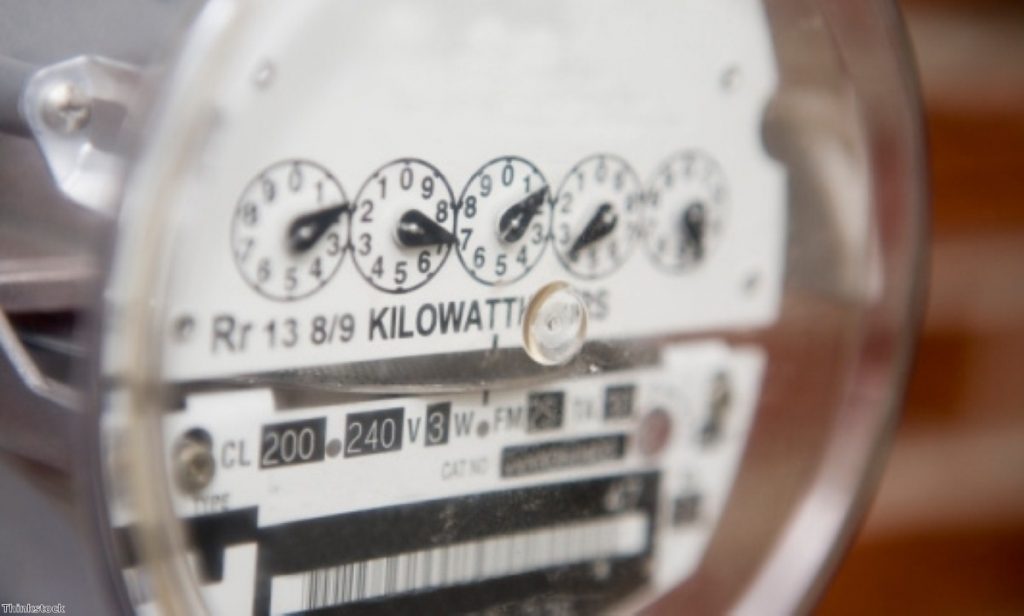Analysis: Will Labour’s energy price freeze win votes – or lose them?
Tensions are already running high in Brighton as energy companies get ready to take on Ed Miliband's price freeze – and the Labour leader may be more vulnerable than he realises.
This fight, which is set to continue up to the next general election and beyond, began almost as soon as the applause for Ed Miliband's conference speech had died down.
The energy companies are not just unhappy. They are fuming. Labour's plan to freeze retail energy prices from May 2015 to January 2017 has left them simmering with rage.
At first glance the row is about the biggest cliché in the energy world – whether or not the lights will go out.


The energy firms say the risk of a return to the power cuts of the 1970s would be plausible if the world energy market experiences "in-year market volatility". It happened in 2008, they point out. And it will, surely, happen again.
Here's the verdict from Ian Peters, an exec at British Gas: "If we have no ability to control what we can do with the retail prices and that happened again, it would mean we are selling products at a significant amount of a loss and that would threaten energy security in the UK."
Labour does not have a convincing answer to this just yet.
"I frankly just do not accept that is likely to result in blackouts at all," shadow energy minister Tom Greatrex replied at a fringe event on energy last night. The problem is he couldn't offer any reasons backing up his claim.
At some stage in the future, he promised, "we'll establish why this is not going to be the case". This uncertainty is more than enough for energy firms' press officers and lobbyists to get their teeth into.
There is more to the opposition's case than meets the headlines, though. Labour views the price fix as a short-term measure, part of a much broader plan to force transparency on the energy markets.
A big part of this is the replacement of Ofgem with a new regulator with real teeth. In 2009, Labour is pointing out repeatedly, wholesale energy prices fell by 46% but energy bills dropped by just five per cent.
Critics of the current watchdog point out the opposition has a point: there is widespread concern about Ofgem and the market. Its probe into what the IPPR thinktank claims is a "flagrant breach" at Scottish Power has not yet concluded after many months, for example.
Yet energy companies have a bigger picture of their own to take into account that goes well beyond the brief spat over the price freeze.
There is £110 billion of investment from energy firms needed over the next decade alone in Britain's energy infrastructure.
The rate of investment is already stuttering. Labour blames the coalition's own internal divides on energy issues, especially the "false debates" about the relative merits of different energy sources.
Now the barely veiled threat is that the vital support of energy infrastructure investment could evaporate if a Labour government were to go ahead with its price freeze plan.
This is a big deal. Centrica invests £1.60 for every £1 of profit made and is able to do so by attracting investors, raising money and paying dividends.
Where would the £110 billion come from without energy company profits? That's the question being posed now.
Right now in Brighton the sense is the initial flapping frenzy of excitement is starting to settle down into a more rational, balanced debate.
This is the start of a grim struggle in which Labour and the energy companies will play a high-stakes game. It is far from clear right now which side will blink first.
A big part of the argument will be about the legality of Miliband's proposals. Some have suggested the move could break an EU directive liberalising the energy market across the continent.
Labour thinks it can dodge this by presenting current pricing arrangements as anti-competitive.
Even if the opposition survives this, it faces another big headache – one which could seriously undermine the popularity of the policy with voters in the run-up to the next general election campaign.
What if energy firms, anticipating the possibility of a 20-month freeze, hike up prices in 2014 to compensate for the risk of Miliband getting into power and quickly legislating?
Then we could see David Cameron blaming Labour, perfectly reasonably, for being responsible for higher bills in this parliament, let alone the next one.
What looks like a real vote-winner right now might end up being exactly the opposite.









